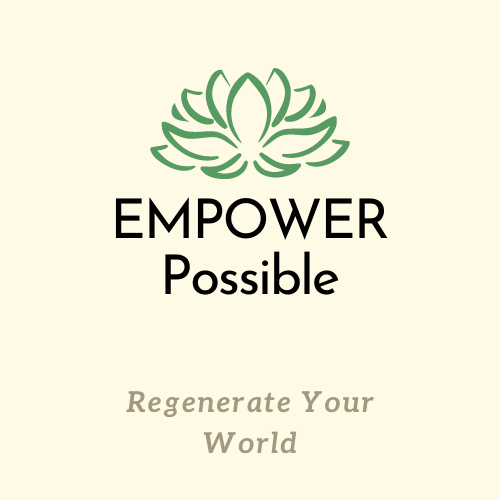Dear Empowered Reader,
Every morning, as I sip my coffee or tea and start my day, I’m surrounded by many small yet profound elements that often go unnoticed. The warmth of the mug in my hands, the peaceful silence before the world wakes up, and the gentle rays of the morning sun streaming through my window.
These are my 'water'—the things that are always there but can be easily overlooked in the hustle and bustle of daily life.
This idea of the 'hidden in plain sight' reminds me of a talk from David Foster Wallace I once heard in college.
In 2005, David Foster Wallace addressed the graduating class at Kenyon College with a speech that is now one of his most-read pieces. In it, he argues against “unconsciousness, the default setting, the rat race, the constant gnawing sense of having had, and lost, some infinite thing.”
He begins with a parable:
"These two young fish are swimming along, and they happen to meet an older fish swimming the other way, who nods at them and says, 'Morning, boys. How’s the water?'
The two young fish swim on for a bit, and then eventually one of them looks over at the other and goes, 'What the hell is water?'"
The point of this story is to- highlights that the most obvious, important realities are often the ones that are hardest to see and talk about. In day-to-day activities, the seemingly everyday occurrences can hold a life or death importance as it is our life. The fish story also illustrates how the most important realities are often the hardest to see. He emphasizes that true education is not about learning how to think, but rather about learning how to choose what to think about. This choice, he argues, can significantly impact one's experience of life's mundane routines and challenges.
In my last newsletter, I discussed how travel can be a happy experience, however, you don't need to travel to experience happiness as it can be discovered in the day-to-day.
What can we learn from this?
Wallace states true freedom comes from awareness and attention, not from knowledge or intellect alone. He warns against the unconscious worship of money, power, or intellect, which can lead to a hollow existence. Instead, he encourages us to consciously choose what to worship and to remain aware of the present moment. This awareness, he believes, is essential for a meaningful life, and the journey to achieve it begins now.
How can we raise awareness?
1) Reflect on the Good:
Take a moment to think about—what are the things in your life that you've become so accustomed to that you may be taking them for granted?
The small victories, the laughter shared, the support from friends and family—let's celebrate these blessings and recognize the profound impact of seemingly ordinary moments. If you can't think of the good, think of how far you have come and what you have had to overcome to get to where you are. Be gentle with yourself.
2) Examining the Sacrifices:
Now, let's explore the flip side. What aspects of your life have you been accommodating without fully acknowledging the sacrifices involved?
Reflect on the routines, habits, or situations that may be causing undue stress or compromising your well-being. The fact is, these seemingly 'banal' elements can have a life or death importance to our overall happiness.
3) Cultivating Gratitude:
This is different than reflecting on the good as gratitude involves actively expressing appreciation for specific aspects of life, while reflecting on the good is more about recognizing and appreciating positive aspects without necessarily expressing that thankfulness. Gratitude is a powerful tool for recognizing the good in the seemingly mundane (warm mug, the feeling of the sun, etc) and a favorite topic of mine, check out this newsletter for more in-depth information (Cultivating Gratitude, even when it is hard to do)
Take a moment each day to express gratitude for the 'water' that sustains you—the positive influences, the opportunities for growth, and the beauty that surrounds you. I write down five things I am grateful for every night before I go to bed. I even bring my notebook with me when I travel, as I love going back and reading about the seemingly small things that bring me joy from day to day.
Let's dive a little deeper with a few Reflection Questions:
- What are three things in your life that you often overlook but bring you immense joy and positivity, despite their seemingly ordinary nature?
- In what areas of your life have you been making sacrifices without fully realizing their impact?
-How can you address or modify these seemingly 'banal' aspects to enhance your well-being?
- How can you integrate a daily gratitude practice into your routine to reveal the hidden realities and foster a more positive and mindful outlook on life?
Lastly, as you embark on this journey of self-discovery, I am thrilled to share more information about the upcoming Mountain 10 workshop. Mountain10 is a transformative experience designed to guide you through a reflective journey where seemingly ordinary decisions can shape extraordinary futures. Discover your passion, navigate challenges, and embrace new opportunities with confidence. Join us in this empowering journey!
 Learn More About Mountain 10 and sign up for the waitlist Learn More About Mountain 10 and sign up for the waitlist 
Curious about David Foster Wallace's speech? Check out the full transcript here.
May this reflection bring a bit of positivity into your life.
Take care, Dear Reader, Julie | 
No comments:
Post a Comment